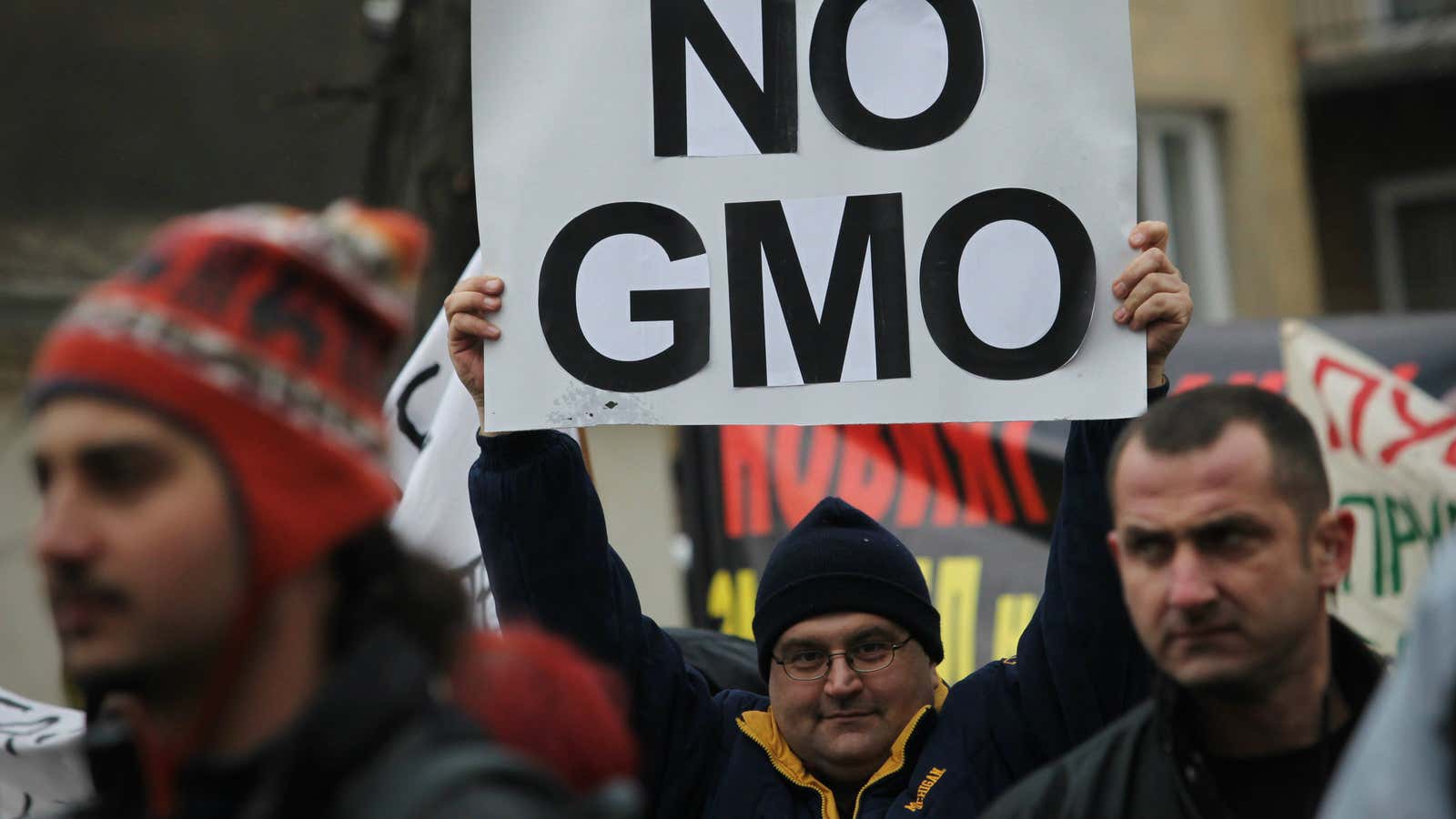Two bottles of soybean oil sit on a grocery store shelf. Both contain genetically modified (GM) soybeans from the same crop. One bottle is labelled as a GM product, the other is not.
Both are in compliance with the US Department of Agriculture’s (USDA) new GM food labeling rules (pdf).
Confused? You’re not alone.
Policymakers at the USDA built a massive loophole into its new rule that blatantly benefits major agricultural interests. The rule exempts certain products that typically come from genetically modified crops—including highly refined sugars, oils, and starches—from GM status. That means the soybeans and sugar beets that wind up in many of the packaged goods in grocery stores aren’t considered by the government to make a food genetically modified, and thus won’t have to be labeled as such.
The loophole is so glaring that even a handful of the world’s biggest food companies were taken aback. Danone, Mars, Nestlé, and Unilever released a comment this week through their trade group, the Sustainable Food Policy Alliance, voicing concern that the USDA rule didn’t go far enough. “The standards fall short of consumer expectations, and the practices of leading food companies, particularly when it comes to how we are already disclosing highly-refined ingredients and the threshold for disclosure,” the group said in its statement.
The Environmental Working Group has estimated that about one-sixth of the foods produced with GM crops won’t have to be disclosed under the new regulation. To be sure, there is no documentation that genetically modified foods have adverse health effects in humans, but despite the science, the demands of the anti-GMO movement have grown over the last several years—enough to cause big food companies to adopt less opaque food labeling policies on their own.
Based on the long-awaited rules, by January 2022, when companies do have to disclose GM food information, they’ll be able to do it one of four ways:
- It can be clearly written in text on the product’s nutrition information panel.
- It can include the USDA’s new symbol for “bioengineered food.”
- It can be hidden behind a QR code that consumers will have to scan with their smartphones (if they have one). This method, touted by the once-powerful but now-hobbled food industry trade group, the Grocery Manufacturers Association, has been described as discriminatory toward the elderly and those unable to afford smartphones.
- The package can include a text message disclosure route, such as “Text [word] to [phone number] for bioengineered food information.”
Those are just a few reasons why you might get two GM soybean oil bottles that are labelled entirely differently.
The GM rules released by the USDA are also odd for another reason: the agency doesn’t even use the term “genetically modified.” Instead, the government is introducing a new term that’s unfamiliar to the general public. “Bioengineered food” is the wording that will be required by the government.
“Much education of consumers will be needed before consumers will understand the newly disclosed information,” said the Center for Science in the Public Interest in a statement.
The rule wasn’t disparaged by everyone, though. The American Farm Bureau Federation, which represents the very farmers who are growing the GM crops that wind up as ingredients in foods that consumers have to choose from, saw the new rule as a clear win. “The rule is a victory not only for consumers who want transparency but for the entire food value chain, from the farmer to food manufacturers,” the group said in a statement. “It provides clarity to the marketplace.”
